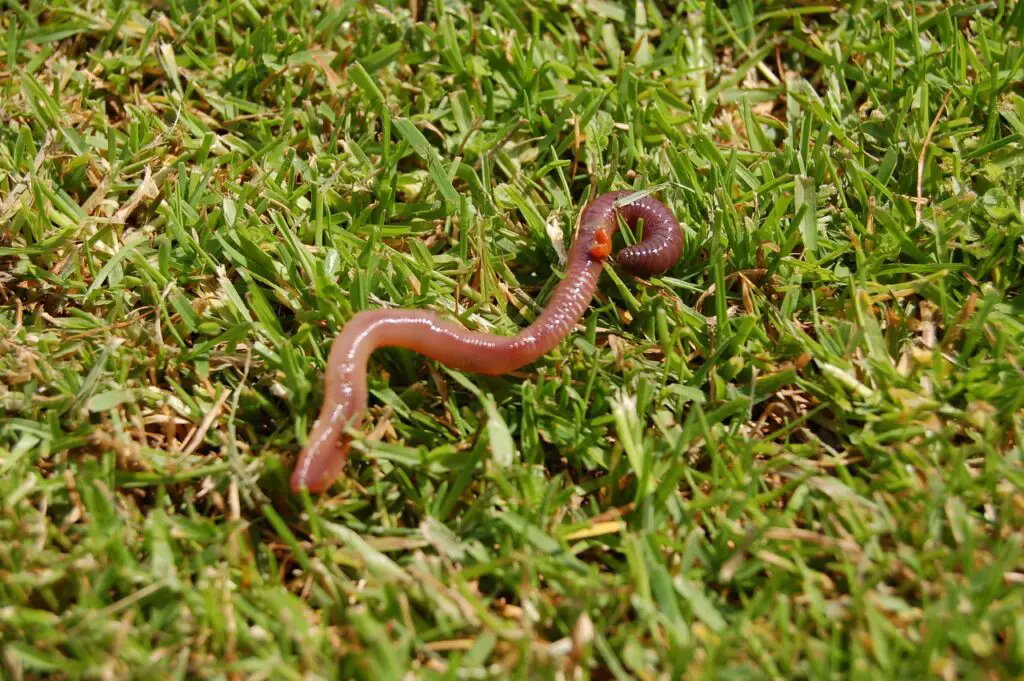Are Earthworms decomposers or detritivores or anything else?
Are Earthworms decomposers or detritivores?
Earthworms are both decomposers and detritivores. It’s because decomposers are those that include detritivores, scavengers, and saprophytes.
So, we can also say that earthworms are a type of detrivoral decomposer.
Detritivores are a sub-type of decomposers. Some examples of detritivores include earthworms, millipedes, dung flies, sea stars, woodlice, slugs, crabs, and sea cucumbers.
Detritivores are those decomposers that feed what they have consumed and then break it down into simple form. That is they eat large amounts of decaying material and excrete nutrients.
Earthworms feed on the organic waste of the dead plants, plant parts, kitchen scraps, etc. and give those out in the form of feces called worm castings.
This characteristic of earthworm being detritivores makes it farmers friends.
It’s because a mutual association between earthworms and the soil and the plants can be seen where each one is benefited from the other.
The earthworms get its food, the soil increases its nutrients, and the plants grow/develop better.
That is earthworms not only feed on the dead organic remains but also it can feed on bacteria and fungi growing on the dead organic matter like dry leaves, cut stems, flowers, etc. of the plants by taking them deep inside the soil.
This plays a key role in enriching the soil’s nutrient content.

What are decomposers?
Ever wondered what would have happened if all the dead organic matter would have lied down in the soil without being decomcomposed. Then all plants would have die and so as a result no animals would have been alive on earth.
This thing may seem to be very simple and easy but, if this happens for only about 5-6 years then it will lead to the death of all life forms, on the planet earth as the food chain and food web ecosystem can toatally break.
So, decomposers are those biotic factors that plays a key role in the flow of energy through an ecosystem.
They break down those organic dead remains into simpler inorganic materials that mix back into the soil making the essential nutrients available to the plants (primary producers).
Decomposers like saprophytes lives on dead or decaying organic matter and feed on them. Example: Fungus
Decomposers like scavengers are organisms that mostly consume decaying biomass, such as meat or rotting plant materials on large scale. Example: Vulture
Decomposers like detritivores are organisms that mostly consume decaying biomass, such as meat or rotting plant materials on small scale. Example: Earthworm
What actually are detritivores?
Detritivores are those small microorganisms that feed on dead organic material, especially plant detritus.
These are heterotrophic organisms that obtain their nutrition by feeding on detritus.
It is very important to note that not all decomposers are technically detritivores.
Unlike detritivores, true decomposers such as fungi, bacteria, or protists can absorb nutrients through extracellular digestion, rather than by oral ingestion. But, detritivores needs to do that by oral ingestion.
Detritivores also play a crucial role as nutrient recyclers in the various energy flow and biogeochemical cycles of the ecosystem. They can do these as they are often eaten by consumers.
In the aquatic ecosystem, detritivores are usually crustaceans such as lobsters, crabs, or echinoderms which include sea cucumbers or sea stars, etc.
In the terrestrial ecosystem, detritivores are usually beetles, earthworms, millipedes, dung beetle, termites, etc.
Detritivores’ main role is to help break down the dead and decaying organic materials present in the ecosystem and bring the nutrients back into the soil.
They play a key role in the ecosystem because they can feed on all those organic materials that producers and consumers have in their bodies.
Why Earthworms are called detritivores?
Now, that you have better known what decomposers and detritivores mean, so we can continue in explaining why earthworms are called detritivores.
People often use the term decomposer and detritivores interchangeably.
But, it will be only technically correct to say earthworms as detritivores more dedicatedly than calling them only decomposers. It’s because they are detrivores type of decomposers.
Earthworms are called detritivores because they play an important role in breaking down the dead organic matter in a process known as decomposition by their oral ingestion of these organic matters in the form of food.
Earthworms also do contribute to the other decomposers. That is eating organic matter and excreting it out in the form of feces (worm castings).
These feces are those smaller pieces of the organic matter on which other types of decomposers like bacteria and fungi feed on to finally release the nutrients back to the soil.
Earthworms can also feed on the bacteria and fungi growing on these organic matters as well.
Although earthworms are like other consumers, but they don’t feed on living organisms. In fact, they only feed on the dead remains of those living organisms or their parts.
Detritivore nature of earthworm can be explained as it breaks down the organic matter into smaller parts. And, now these smaller parts are chemically broken down into nutrients such as Nitrogen, Phosphorus, Potassium, Carbon, etc, back into the soil that the plants will further need to enter it into the food chain.
So, in this way, earthworms being detritivores and decomposers facilitate the constant recycling of nutrients in nature.
What is the position of Earthworm in the Food Chain?
Earthworms occupy the topmost slot in the food chain pyramid of the ecosystem that belongs to the decomposers.
At the base of the food chain are the producers (plants and trees). Above the producers, there are different types of consumers like herbivores, carnivores, omnivores, etc. And above everything all are the decomposers.
They share the same nutritional relationship by feeding on the dead or decaying organic matter. They are called decomposers.
Earthworms being decomposers are very important in our food chain, because they help in recycling the energy in that ecosystem.
The detritivore decomposer earthworm feeds on the dead organic matter and turns them back into simple organic matter.
The decomposers like bacteria and fungi feed on those simple organic matter and turn them into simple chemicals like nitrogen, phosphorus, etc. and add them back into the soil.
Now, the plants growing in that soil utilize these essential nutrients to grow and better develop. They perform photosynthesis to prepare their own food using sunlight mainly and also other nutrients from the soil for its other essential needs.
Now, the plants are fed upon by consumers like cows, goats, humans, etc. and the energy gets passed to their bodies.
Now, when these animals die including plants they fall back to the soil and the decomposers like earthworm, bacteria, fungi, etc. again start to decompose them bringing the energy in the form of essential nutrients back into the soil.
In this way, the cycle repeats again and again and this goes and on and on in the food chain of any ecosystem.
In more simple words:
The autotrophic organisms make their own food by photosynthesis. Primary consumers feed on producers. Secondary consumers feed on primary consumers.
Detritivores feed on dead animals and plant parts while Detritivores feed on debris left behind by scavengers and release the nutrients in form of simpler substances back to the atmosphere.
